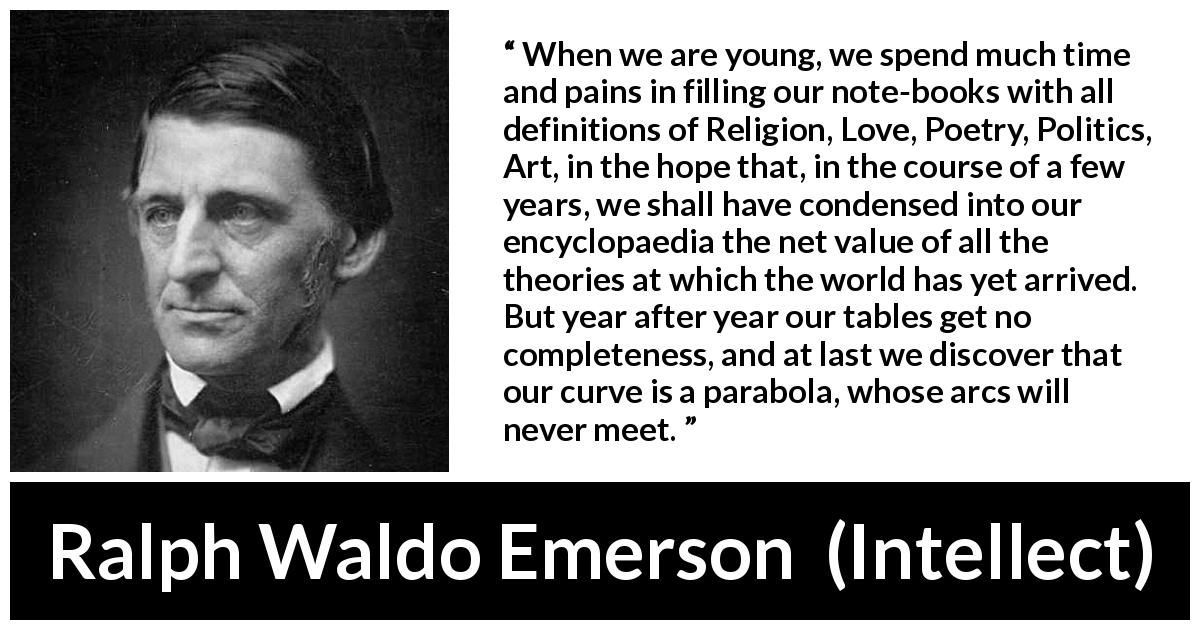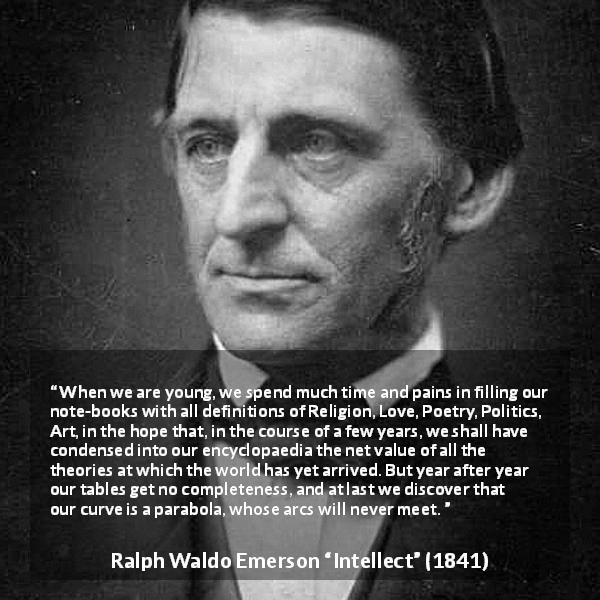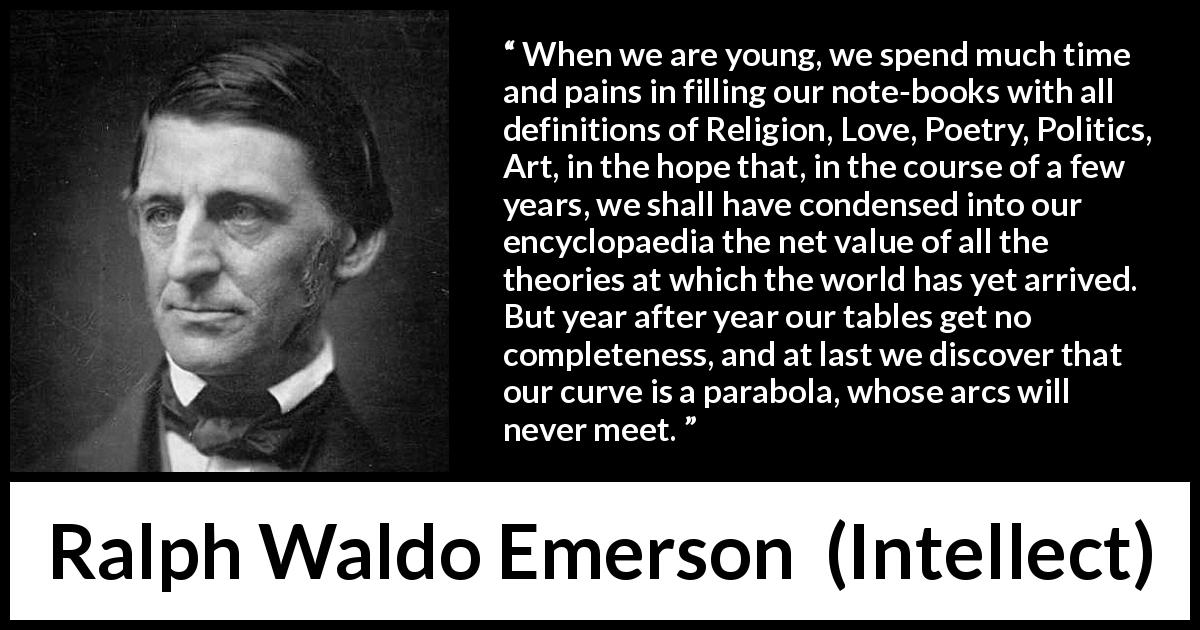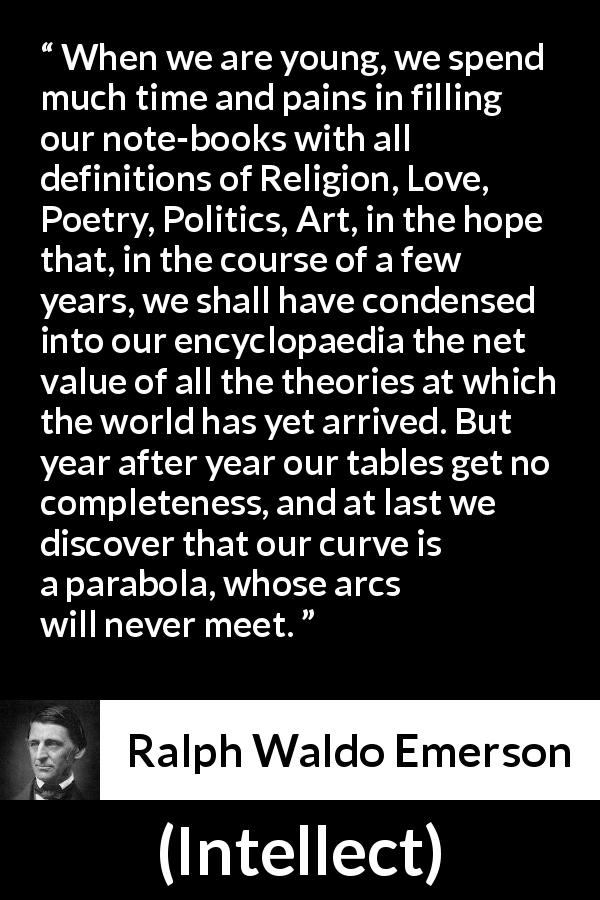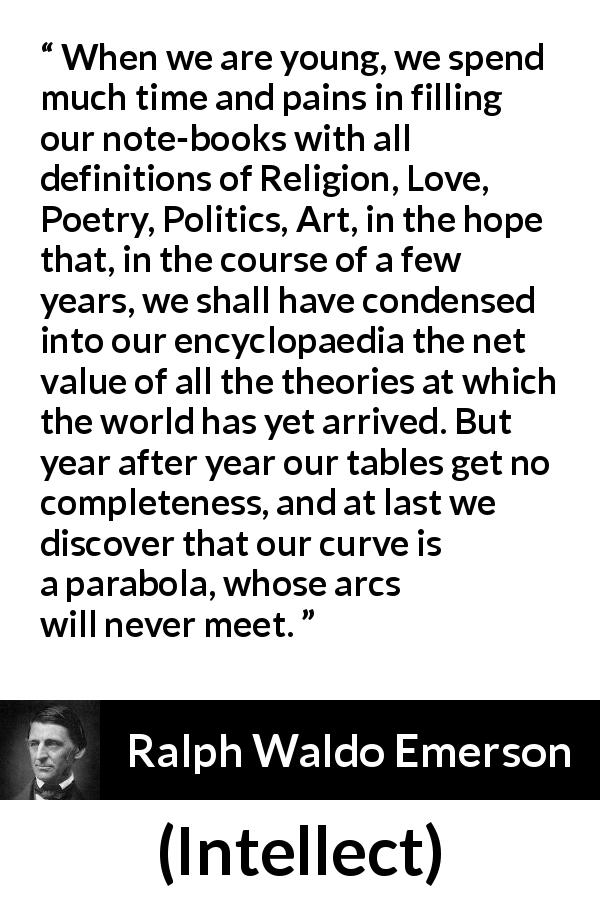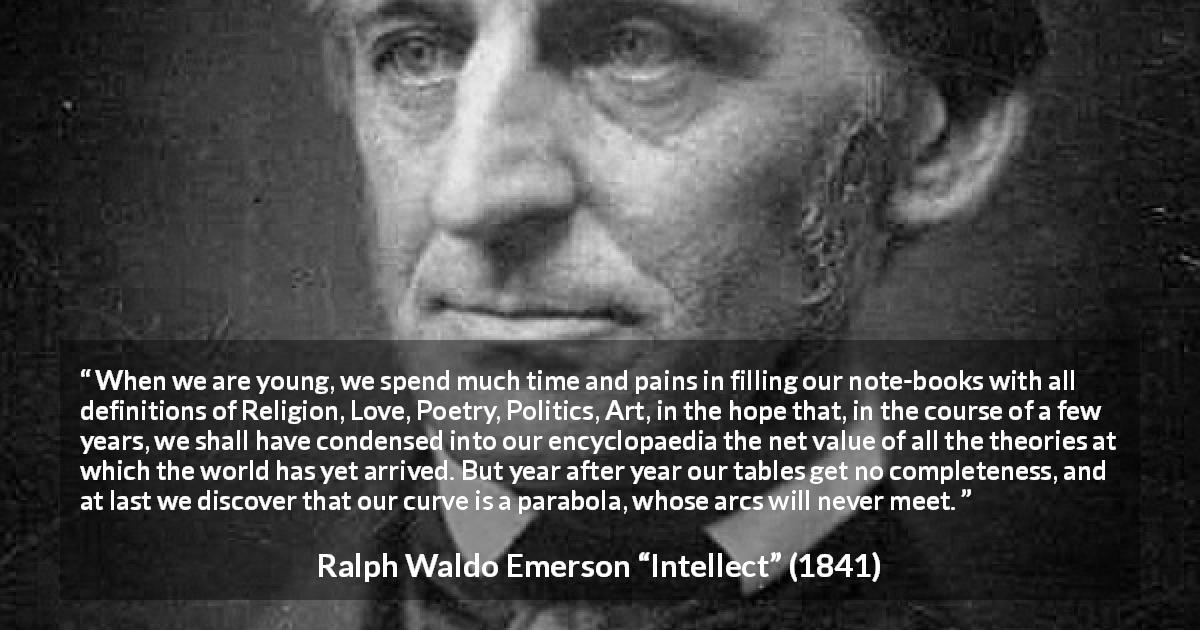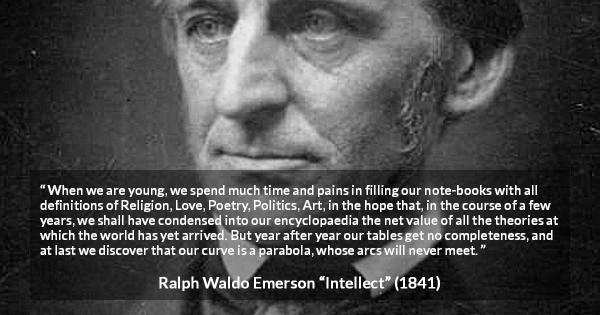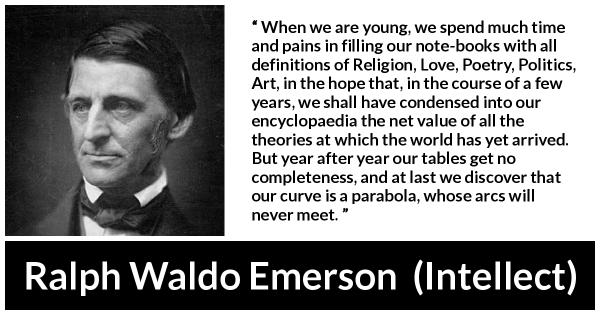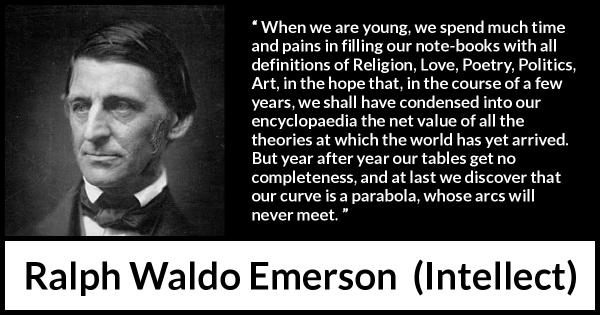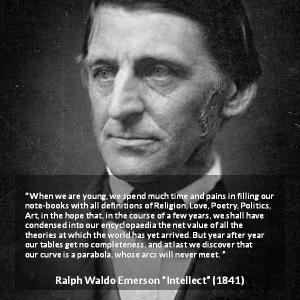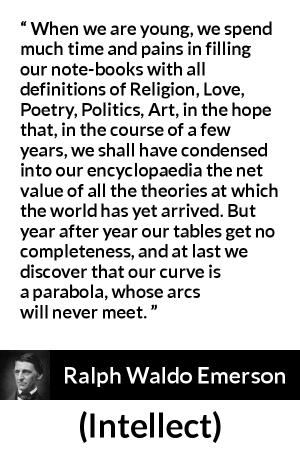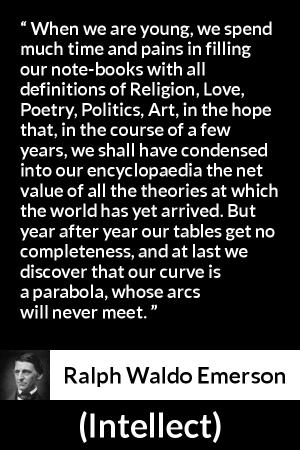“ When we are young, we spend much time and pains in filling our note-books with all definitions of Religion, Love, Poetry, Politics, Art, in the hope that, in the course of a few years, we shall have condensed into our encyclopaedia the net value of all the theories at which the world has yet arrived. But year after year our tables get no completeness, and at last we discover that our curve is a parabola, whose arcs will never meet. ”
Ralph Waldo Emerson, Intellect (1841). copy citation
| Author | Ralph Waldo Emerson |
|---|---|
| Source | Intellect |
| Topic | youth experience learning |
| Date | 1841 |
| Language | English |
| Reference | in "Essays: First Series" |
| Note | |
| Weblink | https://en.wikisource.org/wiki/Essays:_First_Series/Intellect |
Context
“Is it any better, if the student, to avoid this offence, and to liberalize himself, aims to make a mechanical whole of history, or science, or philosophy, by a numerical addition of all the facts that fall within his vision? The world refuses to be analyzed by addition and subtraction. When we are young, we spend much time and pains in filling our note-books with all definitions of Religion, Love, Poetry, Politics, Art, in the hope that, in the course of a few years, we shall have condensed into our encyclopaedia the net value of all the theories at which the world has yet arrived. But year after year our tables get no completeness, and at last we discover that our curve is a parabola, whose arcs will never meet.
Neither by detachment, neither by aggregation, is the integrity of the intellect transmitted to its works, but by a vigilance which brings the intellect in its greatness and best state to operate every moment.” source
Neither by detachment, neither by aggregation, is the integrity of the intellect transmitted to its works, but by a vigilance which brings the intellect in its greatness and best state to operate every moment.” source
